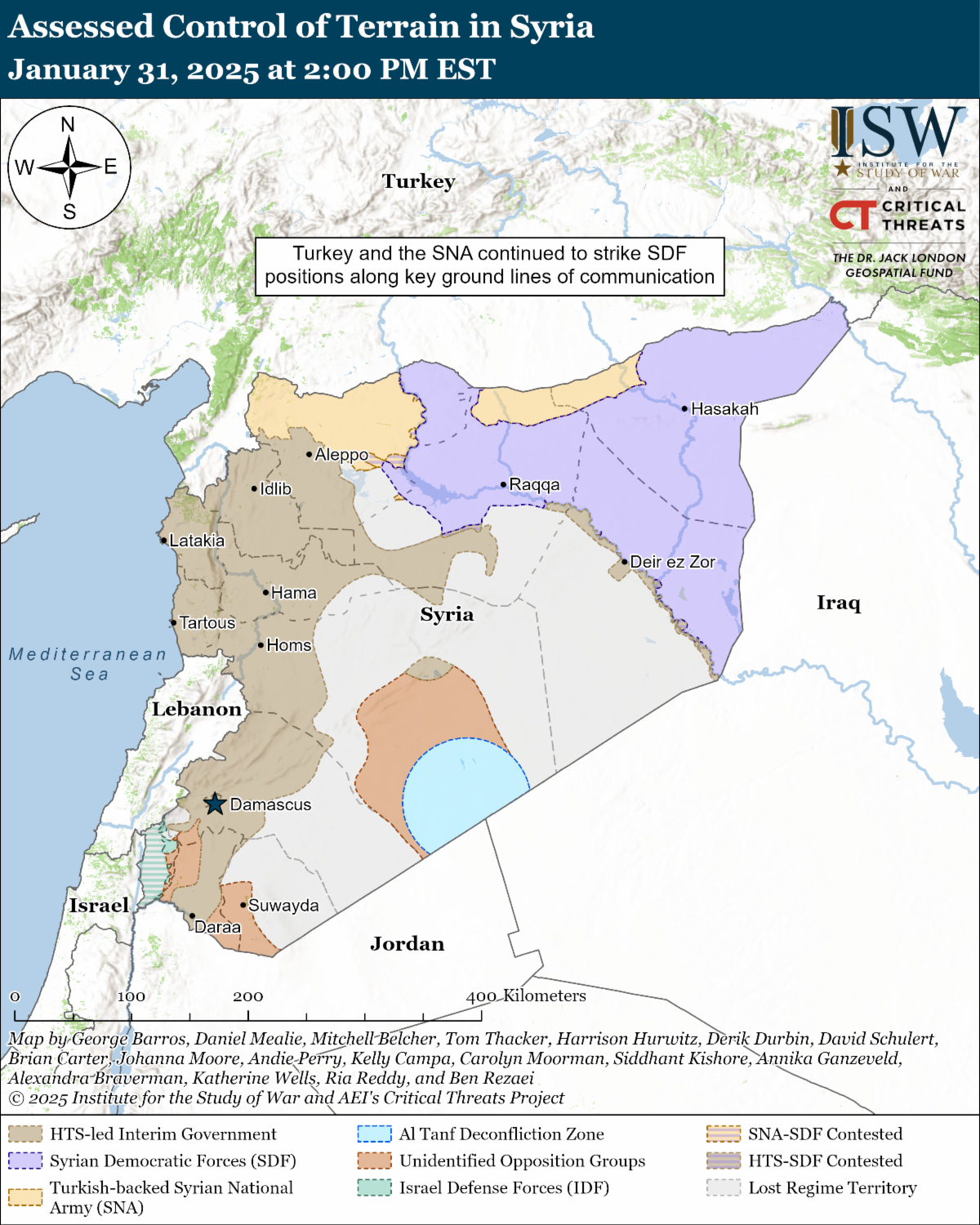Iran is financially supporting the military reconstitution of Lebanese Hezbollah. Israel submitted a complaint to the Israel-Lebanon ceasefire committee, claiming that Iranian envoys are delivering "tens of millions of dollars in cash" to Rafic Hariri International Airport in Beirut to fund the revival of Hezbollah, according to an unspecified US defense official representing the ceasefire committee and people familiar with the content of the complaint. Western media reported in December 2024 that Iran may seek to establish a new "hub" in the Beirut airport for military shipments to Hezbollah. Lebanese airport security forces searched an Iranian Mahan Air flight in Beirut on suspicion of transporting funds to Hezbollah in early January. The Wall Street Journal also reported that 28 branches of al Qard al Hassan—one of Hezbollah's main banking and financial arms—have resumed operations. The Israel Defense Forces (IDF) has frequently struck al Qard al Hassan branches in Lebanon in recent months to isolate Hezbollah's financial networks. Unspecified sources familiar with Israel’s complaint to the ceasefire committee stated that Israel accused Turkish citizens of moving money for Hezbollah from Istanbul to Beirut by air.
Israeli media reported in December 2024 that Hayat Tahrir al Sham (HTS) leader Ahmad al Shara decided to prevent Iranian civilian and military flights from transiting Syrian airspace, possibly explaining why Iran may now rely on access from Turkey. Iran has historically moved materiel via Syria. CTP-ISW previously assessed that loss of access to Syrian airspace would severely limit Iran’s ability to rearm Hezbollah and require Iran to establish other access routes. Iranian cash deliveries alone will likely not be enough to reconstitute the group militarily without additional arms supplies, however. Shara’s decision—if true—to cut off Iran’s supply route to Hezbollah via Syria will still make it difficult for Iran to help Hezbollah reconstitute militarily.
Hamas leadership is privately debating what role the group should play in the post-war Gaza Strip, according to The Economist. Hardliners in the group reportedly seek to prioritize the reconstitution of Hamas’ military while selecting a group of technocrats to govern the strip. The Economist reported that other options that Hamas faces include trying to return to the pre-war status quo in the strip or pursuing a more pragmatic political reconciliation with Fatah, which governs the West Bank. Hamas and Fatah split from one another in 2007.
Hamas’ Gaza Strip-based leadership will likely lean toward prioritizing military reconstitution. Mohammad Sinwar—the brother of Yahya Sinwar—has taken control of Hamas forces in recent months and ignored the Hamas decision to lead the group through a leadership council in early January. Sinwar, who is among Hamas’ most hardline elements, thus appears unlikely to respond positively to any decision from external Hamas leadership to pursue a strategy that he opposes.
Key Takeaways:
- Lebanon: Iran is financially supporting the military reconstitution of Lebanese Hezbollah. Israel claimed that Iran has sent tens of millions of US dollars to Beirut via commercial flights.
- Gaza Strip: Hamas leadership is privately debating what role the group should play in the post-war Gaza Strip.
- Gaza Strip: Israel and the European Union are preparing to reopen the Rafah border crossing to allow sick and wounded Palestinians to leave the Gaza Strip.
| 




 [ISW] 러시아 공세 캠페인 평가, 2025년 1월 31일
[ISW] 러시아 공세 캠페인 평가, 2025년 1월 31일
 [국방부] 김선호 국방대행, 미 국방장관과 첫 통화…한미동맹 굳건...
[국방부] 김선호 국방대행, 미 국방장관과 첫 통화…한미동맹 굳건...